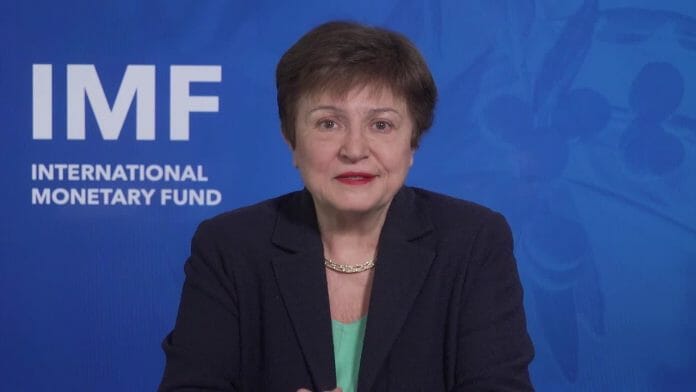International Monetary Fund (IMF) Managing Director Kristalina Georgieva said yesterday that there is mounting evidence that the United States can avoid recession this year and achieve a “soft landing” for its economy.
Georgieva told reporters that US labour markets remain resilient and consumer demand remains strong despite increases in interest rates to fight inflation. She said there has been a healthy shift away from excess goods purchases, which had pressured prices, back toward services demand, and there were more diversified sources of growth in the economy.
“It gives some argumentation of an expectation that the US would avoid falling into recession,” Reuter cited Georgieva saying during her first news briefing of 2023. “And actually, I would say even if it is in technical terms in recession, that will be a very mild recession.”
She noted that determinations of recessions are normally the subject of intense debate but she said she was leaning toward a soft-landing scenario for the United States.
The IMF in October forecast US GDP growth for 2023 at 1.0 per cent, a projection it will update this month. The World Bank on Tuesday forecast US growth at 0.5 per cent for 2023.
Debt Roundtable In February
Meanwhile, a new global sovereign debt “roundtable” that will include China, other creditors and some borrowing countries will meet for the first time next month on the side-lines of a Group of 20 finance officials meeting in India, IMF Managing Director Kristalina Georgieva said on Thursday.
Georgieva, the first person from an emerging market economy to head the International Monetary Fund, told reporters debt relief was critical for heavily indebted nations to avoid cuts in social services and other repercussions.
The Bulgarian economist, who has pushed hard for quicker movement on debt relief, said she would travel to Zambia in two weeks, and hoped the African country would become the second nation after Chad to complete a debt treatment process under the Common Framework.
The framework was set up by the Group of 20 major economies and the Paris Club of official creditors in October 2020 to help countries weather the COVID crisis, but it has been plagued by long delays.
U.S. Treasury Secretary Janet Yellen and other Group of Seven have grown increasingly frustrated about what they see as foot-dragging by China in moving forward on debt treatments for countries seeking help. China, for its part, argues that multilateral institutions should also required to accept reductions in the debt they are owed.
Georgieva said reforms were needed, noting that Ghana was debating whether to seek relief under the G20 Common Framework, but remained concerned about how that process would work and how soon a debt treatment could be agreed.
She said the new roundtable would not substitute for the Common Framework, but would seek to work on transparency, timing of debt treatments, how to set cutoff dates for loans to be considered, and other issues that were not fully resolved.
“The main objective of the roundtable … (is to) bring everybody around the table at the most senior levels,” she said.
It was not yet clear which borrowing countries would participate, Georgieva added, but the intention was to invite G20 members who were also borrowers, since the inaugural meeting would take place in India at next month’s meeting of G20 finance officials.
Additional meetings were expected in April at the spring meetings of the IMF and World Bank, she said.
Georgieva first discussed the new roundtable last month after a visit to China, noting it would also include private sector creditors and multilateral institutions such as the IMF and World Bank.
The IMF estimates that 60% of low-income countries are in or near debt distress, along with some middle-income countries, but Georgieva said she did not believe the world was facing a systemic debt crisis with contagion risks.
She said she was seeing greater willingness in Beijing – now the world’s largest sovereign creditor – to accept rescheduling of debt or interest rate changes, although officials there remained sceptical about actual debt reductions.
“Of course, it is much better if debt reduction is done upfront, not through a reprofiling but with a … haircut,” she said, adding the IMF was continuing discussions with China as lender about the value of having countries actually being able to service their debts.









